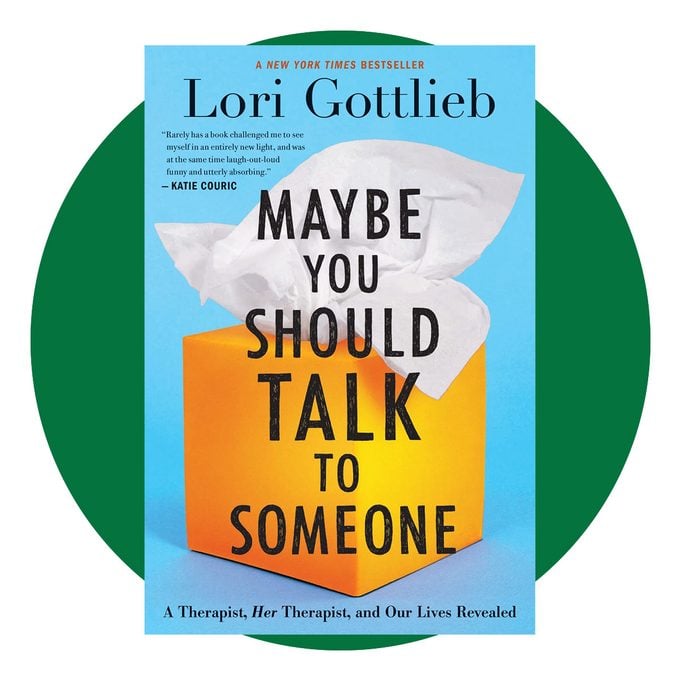New Research: This One Thing Is Necessary to Be Happy at Work
Updated: Jan. 09, 2024

Plus, the number-one trait young professionals are looking for in their leaders.
How important is it to be happy with your job? So important, says new data, that 83% of knowledge workers in 2023 say they’re willing to take a pay cut if it means feeling happier at work.
That’s based on a new survey published by HP—yep, Hewlett Packard—which published the HP Work Relationship Index in September 2023. This was the Palo Alto, CA-based tech company’s first study exploring today’s relationships with work, involving a sample of 15,600 participants.
The study measured more than 50 aspects of work life, skills, productivity, engagement, and people’s expectations of leadership. HP’s data represents respondents from 12 countries across a range of industries, with only 27% reporting a healthy relationship with their jobs. Dissatisfaction at work or a diminished work-life balance means less professional productivity, and suffering personal relationships, health and outside passions. The HP research also concluded that “more than half of these employees struggle with their self-worth and mental health, reporting low self-esteem and feeling like they are a failure.”
The good news is, we’re finally in a time when we’re having this conversation, with less willingness among professionals to accept the disgruntled nature of work culture that existed for so long.
What we need now are ways to start conversations that will improve the circumstances, says psychotherapist Lori Gottlieb. Gottlieb is the author of the 2019 New York Times bestselling memoir Maybe You Should Talk to Someone and co-host of the Dear Therapists podcast. She partnered with HP to speak about the research, discussing with The Healthy @Reader’s Digest how individuals can catalyze change in office culture, and broader society.
Get The Healthy @Reader’s Digest newsletter

The Healthy @Readers Digest: You’ve focused a lot of your psychotherapeutic practice on couples, but today we’re here to talk about work relationships and happiness. We spend so much of our time at work—often more than we do with our partners, friends, family and children. As a psychotherapist, what have you learned about our workplace struggles?
Lori Gottlieb: This is something that people talk about a lot when they come in because we spend a lot of our lives at work. I think that over the last few years, our expectations have changed significantly in terms of what we want from a workplace environment and how we want to integrate that into our lives. So we want to really bring this to light and empower people to make changes.
The Healthy: You partnered with HP on its first study to shine light on the need for more emotional connection in the workplace. When I think back, the closest work friends I have are from my very first job, which was a toxic environment. What’s a healthier way to make a connection with people at work than trauma-bonding?
Gottlieb: It starts with taking some simple steps about talking to your manager about what your expectations are. It doesn’t mean that you have to do it all in one conversation, and it really depends on the way that you frame it. So you want to frame it as they’re going to be getting something out of this. Because I think what managers don’t realize is that the healthier the workplace environment, the more productivity they’re going to get out of the people there. So I think that that’s something that they don’t take into account enough. They kind of feel like, Well, this is my style and this is what I do. So it’s really important for managers to listen and be curious, but it’s important for people to speak up—for example, the study [found that] most people want more flexibility. They want to be able to maybe work from home for a couple of days. They want to be able to leave for a dentist or a doctor appointment. So to say, “Listen, when I have worked from home, this is what I have accomplished.” You can show them I am more productive in this environment, in this way. Can we try this? Can we do this on a trial basis and see how it works?
How to Manage Anxiety, According to an Expert
The Healthy: The flexibility is definitely something that has changed at workplaces over the last few years since COVID. The study found that 73% of people have an unhealthy relationship and it was affecting their sleep, diet, exercise, and emotional health. Do you think that workplaces have gotten worse, or is it that people’s expectations are changing?
Gottlieb: I think that people’s expectations are changing and they’re more aware that they have some agency to make changes. So I think maybe before people said, Oh well, it’s work, and I’m not supposed to be satisfied.
And now people are saying, I really want to be satisfied at work. I want to be fulfilled at work, I want to be valued at work, and I am at my best when those things happen. Things that make me a better employee are things like getting enough sleep, being able to exercise, being able to connect with my friends and family, being able to collaborate at work and have more meaningful connections with my work family because we spend so much time there.
The Healthy: What about young people?
Gottlieb: What millennials and Gen Zs are saying is we want leadership that’s emotionally intelligent. We want people to understand what is going to be most valuable to us because we will leave.
The study showed that people are willing to take a pay cut if they don’t feel like they’re in a healthy work environment. People are saying it is worth my mental health, my work-life balance, and being the best employee that I can be to take an 11% pay cut if I can have a healthier work environment.
And by the way, I think that managers and corporations, workplaces are responding to that. They’re bringing in things like mindfulness and yoga and more flexibility and more collaboration, and they’re seeing the payoff from doing that.
How to Overcome the ‘Sunday Scaries,’ According to a Therapist
The Healthy: I have a loved one who just got a new job that’s going to be entirely remote, and someone in the family is concerned because at his current job he’s been playing ping pong with his coworkers on his lunch break and bonding with them in person. What advice would you give to somebody who is fully remote?
Gottlieb: First of all, I think that it’s important that when people are having meetings that it’s not just about the agenda. There are ways to really check in with each other. So you have that built into the time. So it’s not like we have 15 minutes to have this meeting and we’re just going to talk about the things on the agenda. But how do you check in with each other? How do you say, “How are you? How was your weekend? How are things working for you?” So just those kinds of conversations. You kind of miss that time to just check in with each other that you would have organically, but you need to build that in when you’re working remotely. And I think there are also ways where people can find a time like once a month, we get together in person, which is really fun. I think it’s a great privilege to be able to work from home. And at the same time, you want to build in that human connection.
- New Report: This Is the No. 1 Happiest State in America
- I Ate Soup Every Day for a Week—Here’s What Happened
- Research: 30% of Americans May Be Short on These 7 Vitamins
- A Popular Fruit Was Just Recalled in 19 States Due to Salmonella Concerns
- Magic Johnson Exclusive: ‘I Needed to Become the Face’ of HIV














